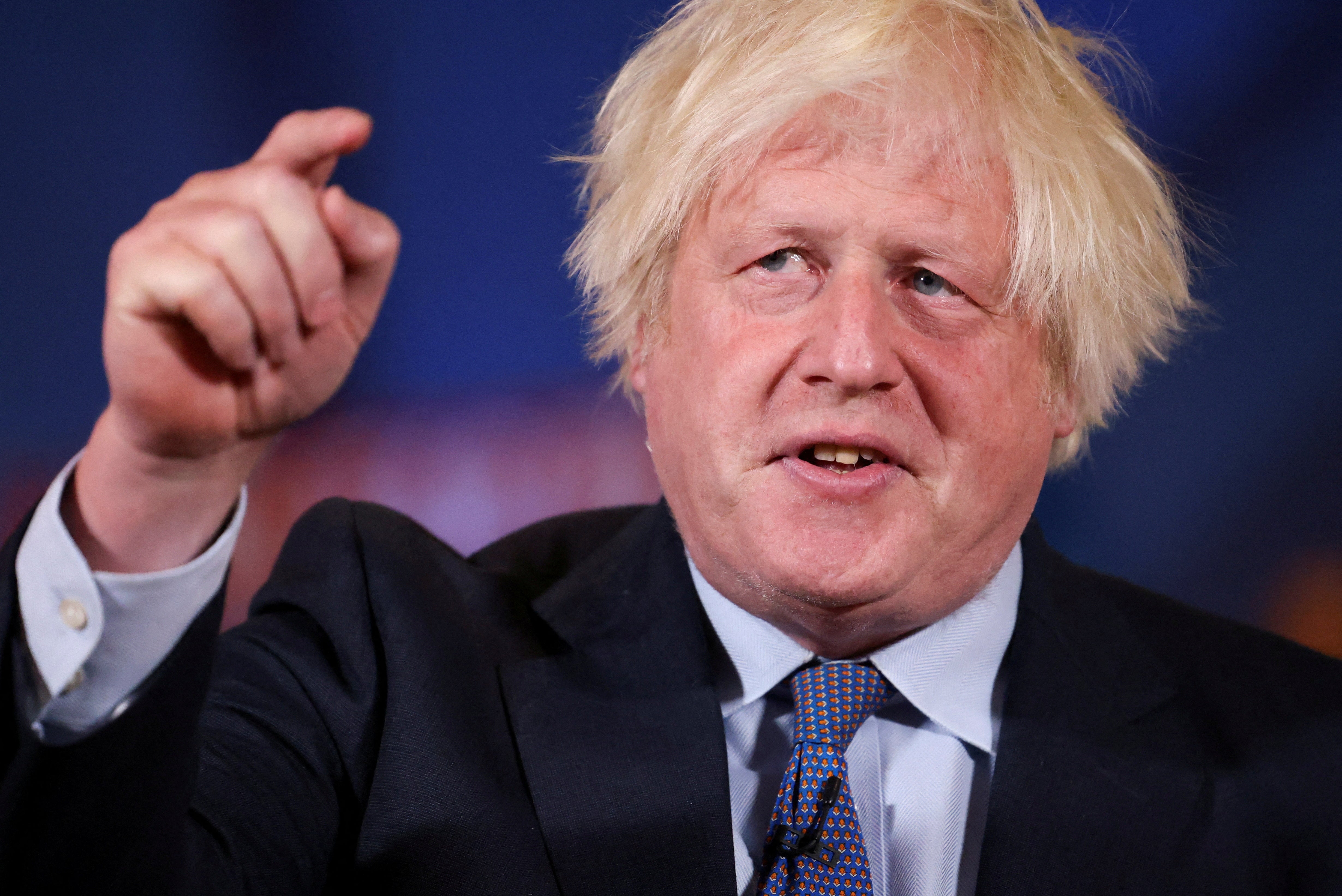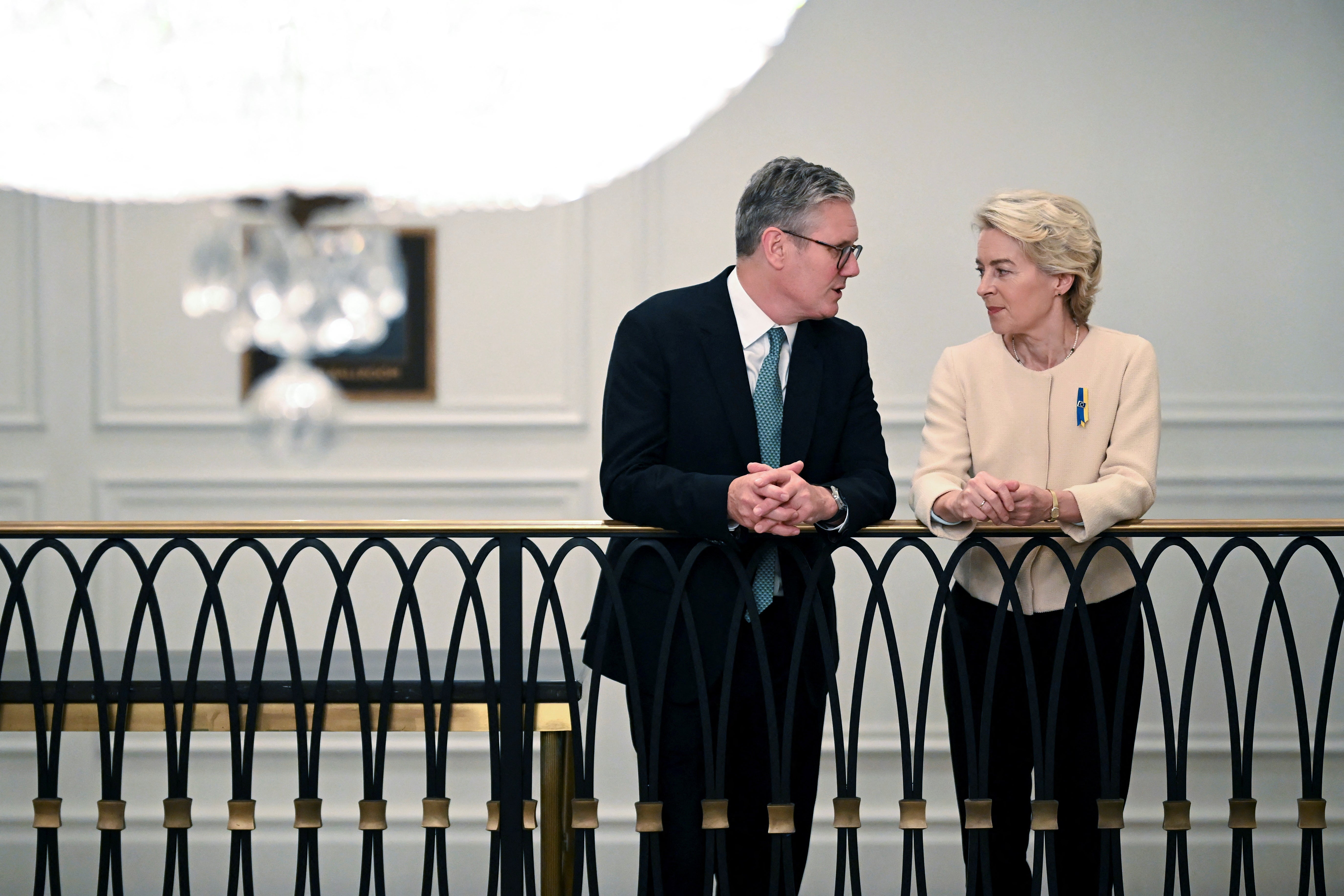‘Bring back EU student exchanges’ demand UK universities
It comes as Sir Keir prepares for his first bilateral meeting with the European Commission president, Ursula von der Leyen

Your support helps us to tell the story
From reproductive rights to climate change to Big Tech, The Independent is on the ground when the story is developing. Whether it's investigating the financials of Elon Musk's pro-Trump PAC or producing our latest documentary, 'The A Word', which shines a light on the American women fighting for reproductive rights, we know how important it is to parse out the facts from the messaging.
At such a critical moment in US history, we need reporters on the ground. Your donation allows us to keep sending journalists to speak to both sides of the story.
The Independent is trusted by Americans across the entire political spectrum. And unlike many other quality news outlets, we choose not to lock Americans out of our reporting and analysis with paywalls. We believe quality journalism should be available to everyone, paid for by those who can afford it.
Your support makes all the difference.British universities have urged the government to reintroduce EU student exchanges which were halted after Brexit, such as the Erasmus programme.
A new report from Universities UK, an organisation which advocates for 141 universities across the country, said Sir Keir Starmer’s government should “strongly consider the case” to rejoin the scheme, cancelled under Boris Johnson.
The Erasmus+ programme provided British university students with funding from the government for education, training and sport in a host EU country, in an exchange scheme with a student from a European university.
More than 10,000 UK university students participated in the scheme in 2018. The government spent around £120m funding the programme that year.
Under Mr Johnson’s premiership, Erasmus+ was cancelled as it wasn’t considered value for money. It was replaced by the Turing Scheme, a mobility programme that encompasses the entire world – although it does not generally include money for inbound students, making exchanges more difficult.
Vivienne Stern, chief executive of Universities UK, said the organisation “really regrets” the recent loss of flow of European students into the UK. However, the organisation also said it is determined not to provoke a return to the “toxic” Brexit row over migration.

“It’s not in our interest for the government to end up caught in a kind of toxic debate about immigration domestically, because in the end that is going to hurt us badly if it drives the government to be clamping down on immigration in other ways,” Ms Stern told The Guardian.
The report also found while the Turing Scheme has made good progress in widening access for disadvantaged students, it has failed to replicate “important components that are key to the success of Erasmus+”.
“It is important that the UK develops the global awareness, understanding and competencies that allow it to play a full and proper role globally,” the report added.
“This is not just ‘nice to have’. In an increasingly polarised and unstable world, the UK should be investing in its capacity to engage with other countries at every level. International experience might also be deployed strategically to create the conditions for stronger future export potential among UK companies.”
It comes as Sir Keir prepares for his first bilateral meeting with the European Commission president, Ursula von der Leyen, on Wednesday.
The Independent understands the prime minister is still open to agreeing a deal on free movement for young people – but does not want to give away his negotiating hand too early – as he prepares a “three pillar” blueprint to reset the relationship with the EU in painstaking talks.

The main talks will be headed by European affairs minister Nick Thomas-Symonds, who is based in the Cabinet Office and has been handed some of the most complex and sensitive tasks in the Starmer government.
The youth mobility scheme, a visa allowing young people to live and work in the UK, has become a symbolic issue for those who claim that Sir Keir is not being ambitious enough with his EU relationship reset.
While the prime minister has told The Independent that he is “very serious” about the reset, pro-EU activists in groups such as the European Movement and sources in Brussels have questioned whether the government wants to achieve much change.
The Department for Education has confirmed the Turing Scheme will continue for a fourth year. The department said it is engaging with schools, colleges and universities to deliver new opportunities for students across the UK.
Join our commenting forum
Join thought-provoking conversations, follow other Independent readers and see their replies
Comments